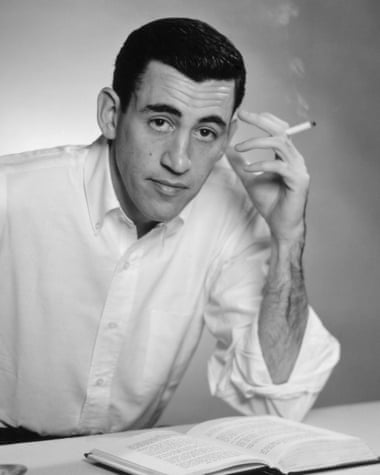 |
| Joyce Maynard |
JD Salinger's teenage lover challenges her 'predator' reputation
Joyce Maynard, now 65, has published a new essay that asks if the #MeToo movement will allow her to tell her side of the story
Thu 6 September 2018
Joyce Maynard, who was wooed as a teenager by the late JD Salinger, has spoken out about how the literary world condemned her as “a predator”.
Maynard was 18 when an essay of hers was published in the New York Times, along with a photograph. The piece led the then 53-year-old Salinger to contact her and, as Maynard writes in the New York Times, urged her to “to leave college, come live with him (have babies, collaborate on plays we would perform together in London’s West End) and be (I truly believed this) his partner forever”.
She left her scholarship at Yale and moved in with him. Seven months later, “with words as devastating as they had once been captivating and entrancing, he put two $50 bills in my hand and instructed me to return to New Hampshire, clear my things out of his house and disappear”, she writes.
Her decision to write about her experience in the memoir At Home in the World in 1998, and subsequently to sell Salinger’s letters to fund her children’s college fees, saw her compared to a horror-fiction “Leech Woman” and “indefatigably exhibitionistic” in the New York Times. Elsewhere, she was labelled a “stalker”, an “opportunistic onetime nymphet”, and the author of a “tawdry boudoir confession”.

One female critic, writes Maynard, “eviscerating a scene in my memoir in which I somewhat delicately describe the experience of forced oral sex with a man 35 years older, wrote of ‘that busy Maynard mouth’”.
Maynard decided to tell her story in At Home in the World after respecting Salinger’s privacy for years until her own daughter reached the age she had been when the Catcher in the Rye author first contacted her, she said. The book was received “with near universal condemnation”, and while “this did not destroy my career or my emotional well-being … it came close”, she says.
Maynard reveals that, at the time, when she was invited to speak at a literary event, “an entire row of writers I respected greatly rose from their seats en masse and, as I took the stage, departed the room”.
She said that she had hoped that the unfolding of the #MeToo movement would lead her own experiences to be seen in a new light, but “it does not appear that enlightenment concerning the abuses of men in power extends retroactively to women who chose to speak long ago, and were shamed and humiliated for doing so”.
But since she published her memoir, she writes, she has been contacted by female peers who had, at around the same age, also received an “absolutely captivating letter … composed in a voice they recognised as that of Holden Caulfield, though bearing an even more familiar name at the bottom of the page and containing words I could recite, I know them so well”.
“It turns out that at least one of the recipients of these letters was carrying on her correspondence with Salinger during the very winter when I was living with him, so careful never to disturb his writing,” she wrote. “Somewhere in this story there may be a predator. I leave it to my readers – in possession of greater perspective, perhaps, than the readers of 20 years ago – to decide which person that was.”


No comments:
Post a Comment